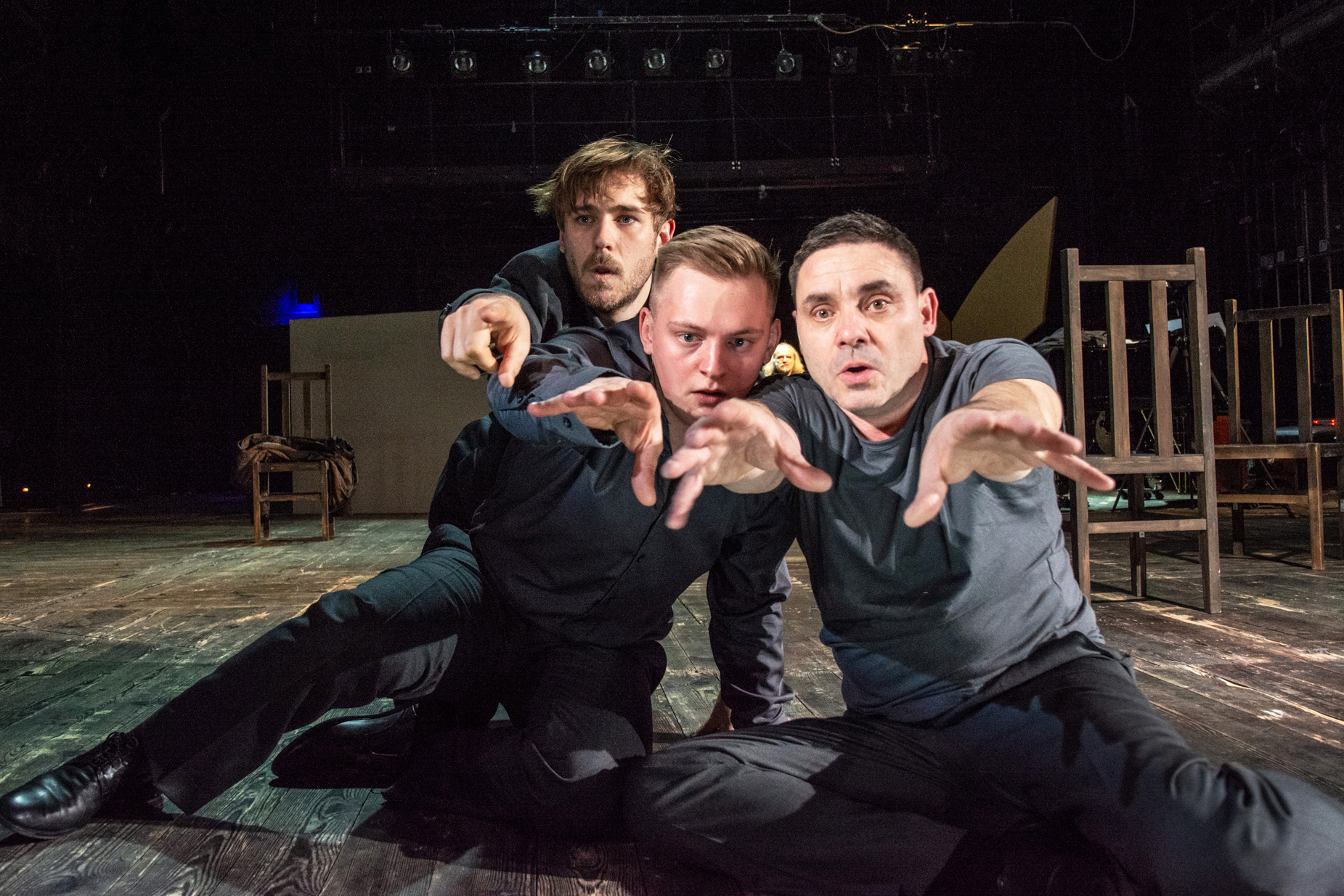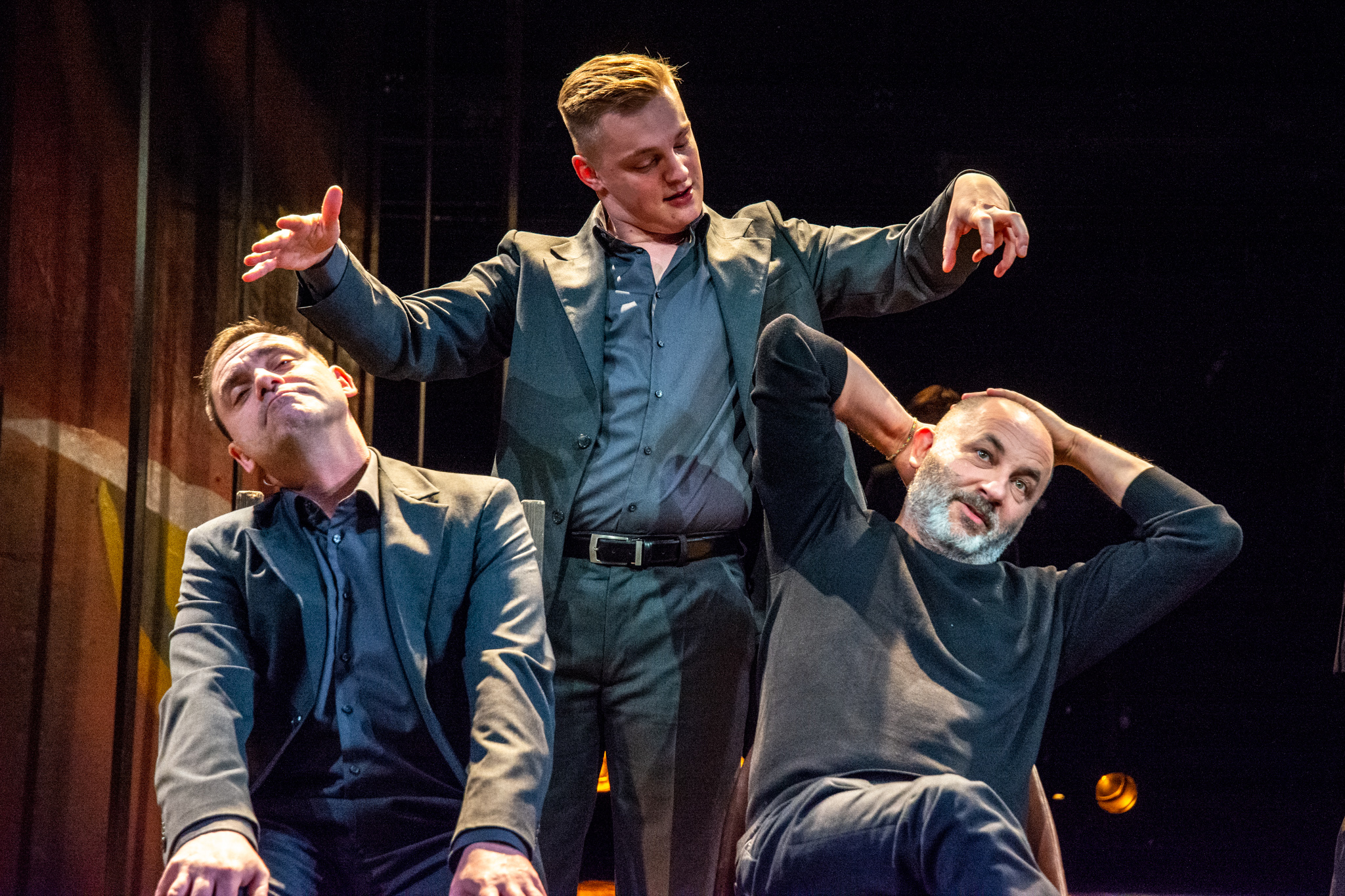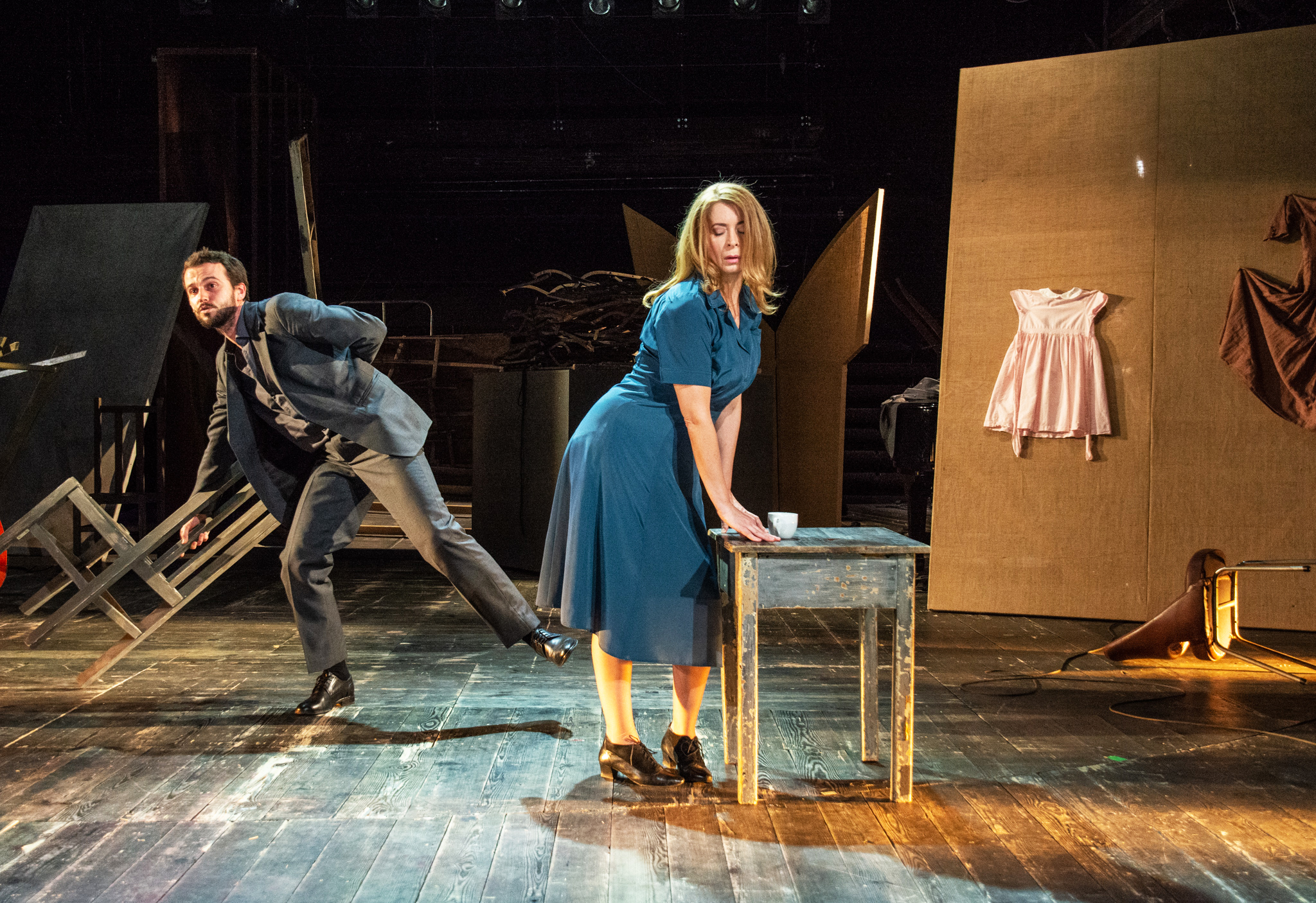Repertoire

Drowning Girl
ul. Starowiślna 21
Premiere
date
2021
When we play
- 30.03
2021 - 31.03
2021 - 11.09
2021 - 12.09
2021 - 14.10
2021 - 15.10
2021 - 16.10
2021 - 17.10
2021 - 15.12
2021 - 16.12
2021 - 17.12
2021 - 05.03
2022 - 06.03
2022 - 15.11
2022 - 16.11
2022 - 17.11
2022
Duration
In this last of meeting places
We grope together
And avoid speech
Gathered on this beach of the tumid river
Sightless, unless
The eyes reappear
As the perpetual star
Multifoliate rose
Of death’s twilight kingdom
The hope only
Of empty men.
T. S. Eliot, The Hollow Men (fragment)
In a world where language is increasingly losing points of contact with the world outside language – ‘the world of facts’ – and the symbol is increasingly hollow (the best example of which, in the field of digital technology, is ‘emoticons’), the role of art, including theatre, is substantially transformed. This transformation involves abandoning story-telling as the theatre’s main focus, in favour of producing an image that transcends all description. Descriptions are always a conceptual attempt to grasp a phenomenon, while an image contains an emotional message, and thus, an appraisal. The shock, the confrontation between the physical world in art and the world in which we are immersed, makes us reflect upon alternatives to what we see around us.
Roy Lichtenstein’s painting “Drowning Girl” and the first aria from Fausto Romitelli video opera “An Index of Metals” were important inspirations, though ultimately they are unrecognizable in the play. This collage of works by Tadeusz Różewicz, Heiner Müller, Tadeusz Borowski and T. S. Eliot embodies the theatrical concept (especially in the modern approach to acting) and corresponds with the musical idea of the dramaturgy that fuses the play’s composition. The significance of this combination of works and the way they operate as part of a whole should emerge in each viewer’s individual interpretation process.
Karol Klugowski
“A Drowning Girl” was less written or directed than COMPOSED. Out of parts which are seemingly mismatched, even though it all came together beautifully, of that I am certain – to a large extent owing to the Stary Theatre actors, who evidently not only entered this game (that’s right, I said “game”) with childlike curiosity, but also brilliantly found a place for themselves, without straying past the classical five-line staff, so to speak, though there were plenty of opportunities to wander off, and the brightly glittering pearl in this play is the marvellous dialogue between Ewa Kaim and Błażej Peszek.
Rafał Turowski, www.rafalturow.ski
Cast
- Ewa Kaim
- Paulina Kondrak
- Maciej Charyton
- Paweł Kruszelnicki
- Mikołaj Kubacki
- Stanisław Linowski
- Adam Nawojczyk
- Błażej Peszek
- Przemysław Przestrzelski
- Musicians:
- Grażyna Sobocińska (vocals)
- Radosław Łukaszewicz (bass)
- Michał Peiker (percussions)
- Paweł Riess (viola)
Creators
- Karol Klugowski Script, director and music:
- Karol Klugowski, Piotr Klugowski Scenography and costumes:
- Jerzy Tabor Animation:



